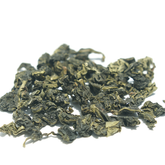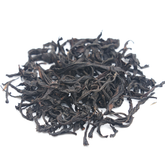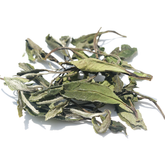The Benefits of Chinese White Tea: Scientific Analysis and Research

Antioxidant and anti-mutagenic effects
The flavonoid content of white tea is as high as 2.025% which is the highest among the six tea types. White tea has good antioxidant efficacy, which is 15-21 times of other tea types. The flavonoid content of white tea processing will rise 16.2 times, flavonoids are natural antioxidants with strong antioxidant effect, can effectively neutralize the ultraviolet rays and environmental pollution generated by the activity of free radicals, and on the white tea tea broth has a certain effect on the color and taste. Modern scientific research has found that the antioxidant capacity of white tea is 10 times that of vitamin E, 20 times that of vitamin C. A cup of white tea is equal to 12 cups of orange juice. A study published in Food Chemistry found that white tea extract showed strong effects in inhibiting free radical activity, comparable to that of standard antioxidants (such as vitamin C).
Anti-Cancer Benefits
White tea is an important tea for research into the potential for cancer prevention due to its abundance of catechins and polyphenolic compounds. These components have been shown to fight cancer cells through a variety of mechanisms, including inhibiting cell proliferation and limiting the spread of cancer cells by interfering with their division cycle. Induction of apoptosis: activates the self-destructive program of cancer cells. Anti-angiogenesis, inhibiting the formation of tumor neovascularization and cutting off its nutrient supply. Anti-inflammatory and antioxidant effects. Reduces the risk of cancer induction by reducing inflammation and free radicals. An experiment published in Cancer Prevention Research showed that white tea extract had a significant inhibitory effect on the proliferation of lung cancer cells, while enhancing the sensitivity of cancer cells to anti-cancer drugs.Another study in the Journal of Food Science found that the catechins in white tea significantly inhibited the growth of colon cancer cells, with better results than some black and green tea extracts.
Antibacterial and anti-inflammatory effects
The tea polyphenols in white tea have a strong astringent effect, and have a significant inhibitory and killing effect on pathogenic bacteria and viruses. Drinking white tea regularly helps to improve the body's ability to fight diseases. The polyphenols (especially catechins) in white tea have been shown to have antiviral activity. One study showed that white tea extracts significantly inhibited the activity of several viruses, including influenza virus and certain enteroviruses. This effect may be related to the ability of catechins to disrupt the viral shell. A study at Boston University found that white tea extract had a more significant killing effect on bacteria and viruses than green tea, especially in the oral environment. Researchers believe this has potential implications for preventing colds and respiratory infections, so people with bad throats can drink more white tea, especially those who smoke regularly.
Sugar-reducing and lipid-lowering effects
Due to the special processing technology of white tea, it retains the active enzymes that are essential for human body and less in other tea types. Long-term consumption of white tea can significantly improve the lipoprotein lipase in the body, promote lipolysis and metabolism, effectively control the secretion of insulin, delay the absorption of glucose in human body, decompose the excess sugar in the body, and promote the balance of blood glucose. Drinking white tea can promote the secretion of large amounts of pancreatic fluid, leading to changes in the body's sugar metabolism, so that the source of blood glucose is reduced, thus lowering blood sugar. In practice, it has been found that old white tea is more effective in lowering blood sugar, and White Hair Silver Needle is more effective in lowering blood sugar than White Peony. Japanese medical doctor Ogawa Gojirou, medical doctor Mino Wada Yi, etc., in the treatment of diabetic tuberculosis patients, accidentally found that white tea on diabetes has a significant therapeutic effect. Kyoto Imperial University Hospital, Prefectural Hospital on 10 diabetic patients to do clinical trials, found that white tea on chronic diabetes has a significant therapeutic effect. Not only in Japan, China's Quanzhou Municipal People's Hospital with the old white tea treatment of diabetes, according to test data, the effective rate of lowering blood glucose up to 70%.

To summarize, white tea, like oolong tea, is a unique type of tea in China, with the main production areas concentrated in China's Fujian and Yunnan Provinces. Famous white teas include Fuding White Tea, White Peony, Silver Needle, and Yunnan's Moonlight White. White tea retains the most nutrients because the processing is very simple. All in all, the Chinese have been drinking this tea for more than thousands of years and it is a healthy beverage that has been well proven over time to be very beneficial to the body.
SEE MORE ABOUT TEAS
If you have questions about selecting tea:
Learn-more-about-chinese-tea
If you have questions about the benefits of tea:
Health-benefits-of-chinese-tea
If you have questions about brewing tea:
How-to-brew-loose-leaf-tea






